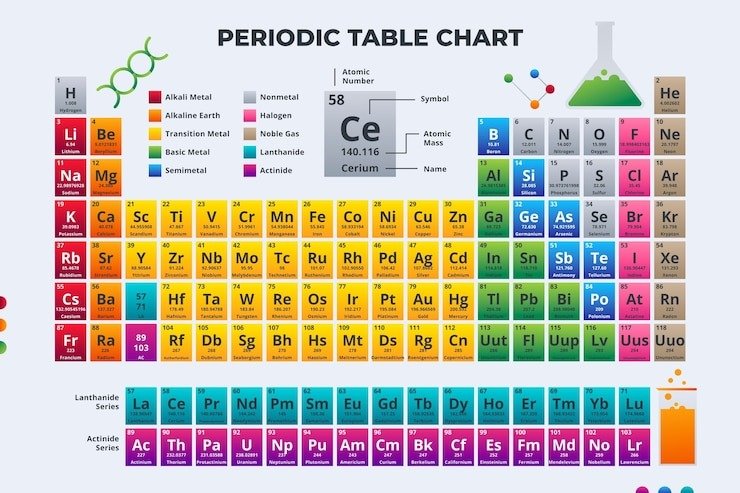Facebook or LinkedIn Groups for Higher Ed Fundraisers: Which Platform is Best?
Facebook or LinkedIn Groups for Higher Ed Fundraisers: Which Platform is Best?
Table of Contents
ToggleFacebook or LinkedIn Groups for Higher Ed Fundraisers: Which Platform is Best?
Fundraising in higher education is a crucial aspect of maintaining the resources needed for institutions to grow and innovate. With social media becoming increasingly integral to networking, higher ed fundraisers now have more tools to engage potential donors, alumni, and peers. Among these tools, Facebook and LinkedIn groups stand out as effective platforms for building professional networks and driving fundraising success. But which one is better suited for higher ed fundraising?
In this article, we’ll explore the value of Facebook and LinkedIn groups, analyze their differences, and help you decide which platform to leverage for your higher ed fundraising efforts.
Why Facebook and LinkedIn Groups Matter for Higher Ed Fundraisers
Both Facebook and LinkedIn groups provide unique spaces for fundraising professionals to connect with their target audiences. These groups enable direct engagement with alumni, donors, and stakeholders, allowing fundraisers to build relationships and increase awareness of their causes. Here’s why these platforms are so useful:
- Community Engagement: Fundraising relies heavily on fostering a sense of community. Both platforms allow for group discussions, information sharing, and a direct line to potential donors.
- Networking: For professionals in the fundraising field, building a network of contacts—whether they are other fundraisers, potential donors, or partners—is essential. Facebook and LinkedIn groups allow fundraisers to network in their niche.
- Knowledge Sharing: Higher ed fundraisers benefit from sharing strategies, success stories, and challenges with peers. Both platforms provide spaces where these insights can be shared, helping fundraisers stay on top of trends and best practices.
LinkedIn Groups: Ideal for Professional Networking
LinkedIn groups are widely regarded as professional communities where like-minded individuals gather to discuss industry-related topics. For higher ed fundraisers, LinkedIn groups offer a space to:
- Engage with Industry Professionals: LinkedIn is centered on professional networking, making it an ideal platform for fundraisers to engage with other higher ed professionals, donors, and industry experts. By joining LinkedIn groups specific to education and fundraising, you can access valuable insights, exchange ideas, and stay updated on industry trends.
- Access to Thought Leadership: LinkedIn groups often feature discussions led by thought leaders in higher ed and fundraising. These groups provide an excellent opportunity to learn from industry veterans, attend webinars, and read case studies relevant to fundraising.
- Professional Development: LinkedIn is not just about networking; it’s also a platform for professional development. Many LinkedIn groups focus on career growth, offering resources like workshops, webinars, and job opportunities within higher ed fundraising.
Best LinkedIn Groups for Higher Ed Fundraisers:
- Higher Education Advancement: A group dedicated to discussions on fundraising, alumni relations, and advancement in higher education.
- University Fundraising Professionals: A group for those working in university and alumni fundraising, focusing on donor engagement and campaign success stories.
- Nonprofit Fundraisers: While not exclusive to higher ed, this group provides insights and tips relevant to fundraising strategies in the nonprofit sector, including higher education institutions.
Facebook Groups: A Community-Driven Approach
Facebook groups differ from LinkedIn in that they offer a more informal, community-driven environment. For higher ed fundraisers, Facebook groups provide:
- Direct Alumni Engagement: Alumni are often already active on Facebook, making it a great platform to engage them with fundraising campaigns. Facebook groups allow institutions to create communities specifically for alumni, fostering a sense of belonging and increasing the likelihood of donations.
- Personalized Interactions: Facebook groups are generally more personal and social in nature. This allows fundraisers to build emotional connections with group members, share stories about the impact of donations, and drive engagement through posts, videos, and event announcements.
- Broader Audience Reach: While LinkedIn is more professional, Facebook has a broader user base, making it easier to reach a wider audience. By joining or creating Facebook groups dedicated to higher ed fundraising, you can engage alumni, students, and the broader community in your efforts.
Best Facebook Groups for Higher Ed Fundraisers:
- Higher Education Fundraising Network: A group for professionals to share fundraising tips, strategies, and success stories from the higher education sector.
- University Alumni Associations: Groups specifically for alumni, where fundraisers can engage directly with their target audience to drive donations and promote events.
- Nonprofit Fundraising Ideas & Tips: A group for nonprofit fundraisers to exchange ideas, including higher ed fundraising strategies, donor outreach methods, and campaign management.
What is the Difference Between LinkedIn and Facebook Groups?
The primary difference between LinkedIn and Facebook groups lies in their audience and purpose:
- LinkedIn Groups: These are tailored for professionals seeking networking, career development, and industry-specific insights. The focus is more on building connections within the industry, sharing best practices, and advancing career goals.
- Facebook Groups: These groups are more community-focused, offering fundraisers the ability to build emotional connections with a broader, more diverse audience. Facebook groups are ideal for alumni engagement, fostering community spirit, and building personal relationships with potential donors.
Are LinkedIn Groups Worth It?
LinkedIn groups are worth joining if you’re looking for a professional network that can provide insights into the latest fundraising trends, peer connections, and thought leadership. Higher ed fundraisers benefit greatly from LinkedIn’s focus on industry-specific discussions, career development opportunities, and professional resources.
However, the value you get from LinkedIn groups depends on active participation. Joining a group and passively observing will not yield significant results. To make LinkedIn groups worth your time, you need to contribute, engage in discussions, and connect with other members.
Which Platform is Best for Higher Ed Fundraising?
Both Facebook and LinkedIn groups have their advantages, and the best platform for your higher ed fundraising efforts depends on your goals:
- If you’re looking to engage alumni directly and build a community around your institution, Facebook groups are likely your best bet. The platform allows for personalized, community-driven interactions that can help foster emotional connections with donors.
- On the other hand, if you’re focused on professional networking and looking for industry insights, LinkedIn groups offer more value. LinkedIn is ideal for connecting with other fundraising professionals, accessing industry trends, and developing your career.
For optimal results, consider using both platforms strategically. Engage with alumni and the broader community on Facebook while building a professional network and accessing industry-specific knowledge on LinkedIn.
Conclusion
When it comes to higher ed fundraising, both Facebook and LinkedIn groups offer valuable opportunities for engagement, networking, and community-building. By understanding the unique advantages of each platform, you can leverage them to enhance your fundraising efforts, build stronger relationships with donors, and stay informed about the latest trends in higher education fundraising.
Whether you’re building a professional network on LinkedIn or fostering a community on Facebook, both platforms provide powerful tools to support your higher ed fundraising goals.
Meta Description:
FAQs:
- What are LinkedIn groups most ideal for?
- LinkedIn groups are best for professional networking, industry discussions, and sharing knowledge related to higher education fundraising. They allow fundraisers to connect with peers, access thought leadership, and engage in professional development.
- What are Facebook groups most ideal for?
- Facebook groups excel in community-driven engagement, making them ideal for connecting with alumni and creating a sense of belonging. They help build personal relationships with potential donors and support broader outreach efforts.
- What is the main difference between LinkedIn and Facebook groups?
- LinkedIn groups are more focused on professional networking and career development, while Facebook groups offer a more informal and personal environment, ideal for building community and engaging a broader audience, such as alumni.
- Are LinkedIn groups worth it for higher ed fundraisers?
- Yes, LinkedIn groups are worth it for higher ed fundraisers seeking professional networking opportunities, industry insights, and thought leadership in fundraising. Active participation is key to gaining value from these groups.
- What are the best LinkedIn groups for higher ed fundraisers?
- Some top LinkedIn groups for higher ed fundraisers include “Higher Education Advancement,” “University Fundraising Professionals,” and “Nonprofit Fundraisers.” These groups provide professional networking and access to industry trends.
- What are the best Facebook groups for higher ed fundraisers?
- Popular Facebook groups for higher ed fundraisers include “Higher Education Fundraising Network,” “University Alumni Associations,” and “Nonprofit Fundraising Ideas & Tips.” These groups focus on community engagement and donor relations.
- Can I use both Facebook and LinkedIn for higher ed fundraising?
- Yes, using both platforms strategically can maximize your reach. Use Facebook for alumni engagement and building community, while leveraging LinkedIn for professional networking and accessing industry knowledge.
- Which platform is better for engaging alumni?
- Facebook is generally better for engaging alumni due to its more personal and community-driven nature. Creating alumni-focused groups can foster a strong connection with potential donors.
- Which platform offers better professional development opportunities?
- LinkedIn is better suited for professional development, offering access to industry insights, thought leadership, and opportunities to connect with fellow higher ed fundraising professionals.
Why You Need to Read These Blog
Which Gas is Alphabetically First on the Periodic Table?
A Complete Guide to Integrated Performance Assessment (IPA) in Language Learning
Deep Offshore Technology: Innovations, Challenges & Future Trends
Unlocking the Power of AI Content Creation: A Comprehensive Guide to Jasper AI
How to Plan an International Trip in Your Own Plane: A Complete Guide
Should You Search Google or Type a URL? Find Out the Best Approach
Top 5 Best Cheap Washing Machines and Dryers: Budget-Friendly Picks for 2024
What Is the Minimum Wage in Michigan 2024? Latest Rates & Updates
Top eCommerce Companies in Western PA: A Comprehensive Guide
What Travel Sites Accept PayPal?
Solar Panels vs Electricity Bills Savings in 2024: How Much Can You Save?
How to Calculate Occupancy of a Charter Business: Formula, Methods, and Strategies






